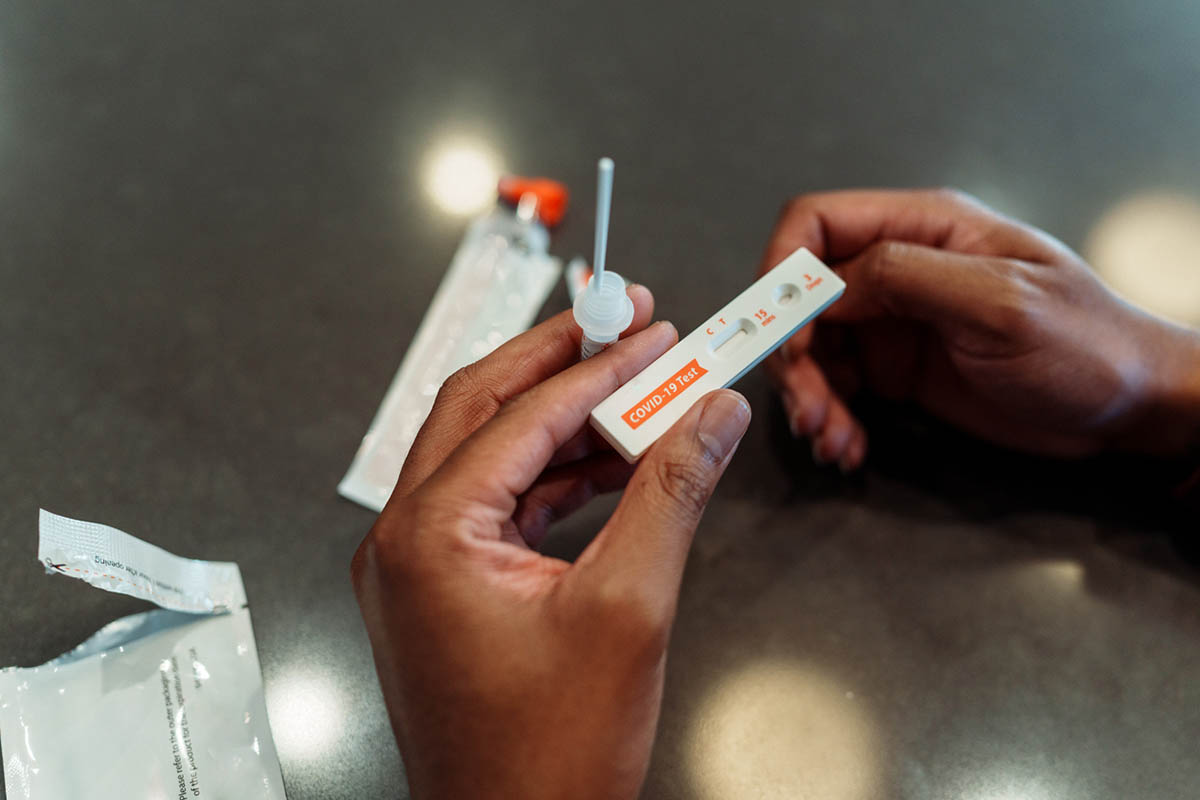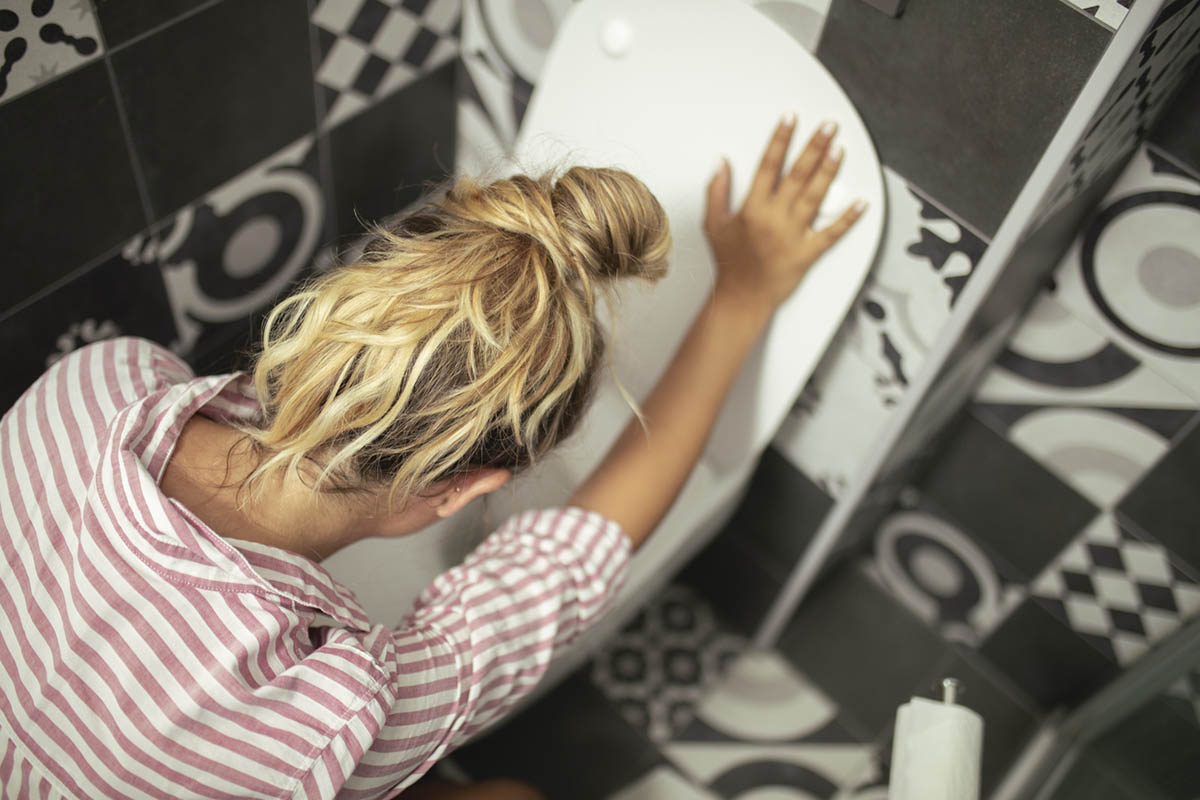See letter by Kow and Hasan and reply by Bhatia et al

COVID-19 Pandemic-Induced Panic Disorder
The world is facing the coronavirus disease 2019 (COVID-19) pandemic, which is bringing new challenges for mental health experts.1 COVID-19 will produce new morbidity and may also precipitate or exacerbate existing psychiatric illnesses. The stress due to the pandemic can produce fear and worry about one’s own health and that of relatives, changes in sleep or eating patterns, difficulty in concentrating, worsening of chronic health problems, and increased use of alcohol, tobacco, or other drugs.2 The containment measures such as lockdown, isolation, and quarantine can also precipitate psychiatric morbidity, especially depression, anxiety, and suicidal tendencies.3 After the pandemic is over, new mental health challenges are going to arise. We encountered a patient who developed panic disorder due to news of the COVID-19 pandemic.
Case Report
A 28-year-old unmarried, college-educated man of upper middle socioeconomic status presented to the medical outpatient department of Guru Teg Bahadur Hospital, University College of Medical Sciences, Dilshad Garden, New Delhi, India, with the complaints of multiple episodes of anxiety, shortness of breath, and chest pain. The chest pain was episodic, lasting for 15-20 minutes, and was associated with excessive sweating, body trembling, dryness of mouth, and fear of impending doom. He also had an excessive fear of getting the coronavirus infection. Routine laboratory investigations and electrocardiogram were conducted, and the results were all within normal limits. He was then referred to the psychiatry outpatient department.
After a complete evaluation and detailed assessment, the patient was diagnosed with panic disorder (DSM-5 criteria). The precipitating factor for the episodic illness was repeatedly hearing news of the coronavirus infection outbreak. The patient had no history of any contact with individuals infected with COVID-19, had not recently travelled to areas where the virus was prevalent, and had no symptoms of infection such as fever, cough, shortness of breath, or breathing difficulties. He was concerned about the situation globally and also about his own risk of contracting the virus as well as that of his family members. He had no history of psychiatric illness (personal or family), substance abuse, hospitalization, or chronic medical illness such as hypertension, diabetes mellitus, or thyroid dysfunction.
The patient was counseled and provided psychoeducation about the illness. He was started on tablet paroxetine 12.5 mg/day and tablet clonazepam 0.25 mg if required. He visited our outpatient clinic regularly, and within 2 weeks of initiating treatment, his symptoms improved and were well maintained with the medication. The role of placebo effect due to reassurance of improvement cannot be ruled out in this patient.
Discussion
Paroxetine has been used effectively in the management of panic disorder4,5 and thus was used in our patient. Improvement in these patients may also be augmented by the placebo effect of reassurance.
Received: March 30, 2020
Published online: April 30, 2020
Potential conflicts of interest: None.
Funding/support: None.
Patient consent: The patient provided informed consent to publish this case report, and information has been de-identified to protect anonymity.
REFERENCES
1.Addressing Mental Health and Psychosocial Needs during the COVID-19 Outbreak. Mental Health Innovation Network website. https://www.mhinnovation.net/resources/addressing-mental-health-and-psychosocial-needs-during-covid-19-outbreak. Accessed March 22, 2020.
2.Coronavirus Disease 2019 (COVID-19): Stress and Coping. Centers for Disease Control and Prevention website. https://www.cdc.gov/coronavirus/2019-ncov/daily-life-coping/managing-stress-anxiety.html?CDC_AA_refVal=https%3A%2F%2Fwww.cdc.gov%2Fcoronavirus%2F2019-ncov%2Fprepare%2Fmanaging-stress-anxiety.html. Accessed March 22, 2020.
3.Coronavirus Disease (COVID-19): Psychological, Behavioral, Interpersonal Effects, and Clinical Implications for Health Systems. Frontiers website. https://www.frontiersin.org/research-topics/13561/coronavirus-disease-covid-19-psychological-behavioral-interpersonal-effects-and-clinical-implication. Accessed March 22, 2020.
4.Dannon PN, Lowengrub K, Iancu I, et al. Paroxetine in panic disorder: clinical management and long-term follow-up. Expert Rev Neurother. 2004;4(2):191-198. PubMed CrossRef
5.Batelaan NM, Van Balkom AJLM, Stein DJ. Evidence-based pharmacotherapy of panic disorder: an update. Int J Neuropsychopharmacol. 2012;15(3):403-415. PubMed CrossRef
aDepartment of Psychiatry, University College of Medical Sciences and Guru Teg Bahadur Hospital, Delhi, India
*Corresponding author: Manjeet Singh Bhatia, MD, Department of Psychiatry, University College of Medical Sciences and Guru Teg Bahadur Hospital, Dilshad Garden, Delhi-110095, India ([email protected]).
Prim Care Companion CNS Disord 2020;22(3):20l02626
To cite: Bhatia MS, Goyal S, Singh A, et al. COVID-19 pandemic-induced panic disorder. Prim Care Companion CNS Disord. 2020;22(3):20l02626.
To share: https://doi.org/10.4088/PCC.20l02626
© Copyright 2020 Physicians Postgraduate Press, Inc.
Enjoy this premium PDF as part of your membership benefits!





